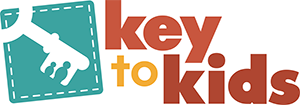You see, until I had my own children I was a teacher of other people’s children. You know the saying ‘I was the best parent in the world until I actually had my own children?’ I believe it.
As young teachers, we would sit at the staffroom table on our breaks whinging and whining about what Little Johnny said, or what little Charlie did or didn’t do. We would expertly assign students a role that was played out in our classroom; Caleb ‘The Maths Whiz, Paige ‘Creative Writer’, Timmy ‘Class Clown’, or if you were unlucky ‘The Naughty One’.
Fast forward ten years and I have two children of my own. I reflect on their personalities and wonder which role have they been cast?
My son was like a duck to water at school, learning all his sight words quickly and zooming up the reading scheme ladder. I smugly relished in his successes thinking I must have done something right, it was obviously the enriching experiences I gave him in his pre-school years.
One year on, my daughter commenced school and having the same ‘pre-school’ experiences (they are only eighteen months apart) I immediately expected the same promising results. I remember the words from her teacher at the first term interview, “she is not at the same level as her brother was”. WHAT!?! The smugness disappeared!
When I reflected on this and admitted some truths to myself I realised I had also created roles for my children, like I had all those years ago as a teacher. Master 6 had become ‘The smart one’ by default because I directed all my educational spiels to him… “Look at that digger – what do you think they’re building? “How many cows are in that field?” “Why do you think we have traffic lights?” Meanwhile, Madam 5 was taking the easy road, avoiding all the hard stuff because I assumed it wouldn’t interest her or she wouldn’t understand. She was my ‘pretty’ one and ‘Daddy’s beautiful girl’ instead.
Whoops. I did this without realising.
The problem with casting roles? This can become a child’s belief and view of themselves. It can enable a behaviour such as ‘the clown’ or inhibit the achievements of ‘the pretty one’. It can put pressure on ‘the smart one’ or ‘the good one’. It can condone the behaviour of ‘the naughty one’ or ‘the bully’.
Children need to cast, produce and perform their own roles in the play of life. We can enable this via a few easy steps, but the easiest and most important one is to stop telling kids what they are and start letting them discover what they want to be.
Oh, and for the purpose of this story the report card of child number two was commendable. Smugness has returned.

